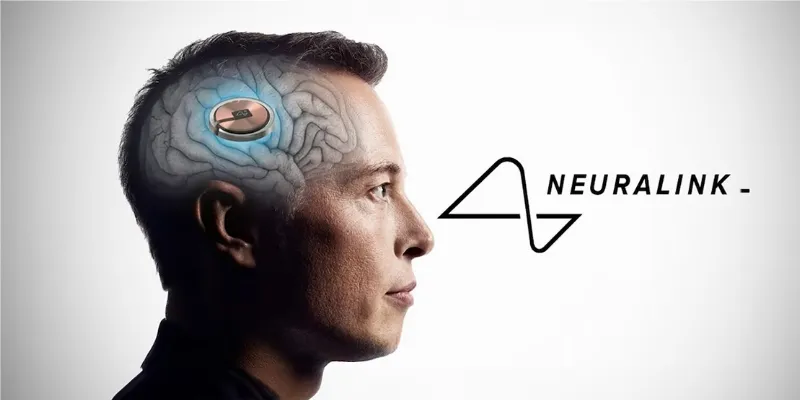Elon Musk's Brain Implant, Neuralink, Receives FDA Approval for Human Trials

20 September 2023
Elon Musk's brain implant venture, Neuralink, has received approval from the US Food and Drug Administration (FDA) to conduct human trials for its brain-implant device. The primary objective of this ambitious project is to implant chips into the brain, potentially enabling individuals with conditions such as cervical spinal cord injuries or ALS to operate devices merely through thought.
Elon Musk's venture into brain-computer interfaces, Neuralink, is stepping up its operations, announcing its search for participants in its inaugural human trial. The trial, approved by FDA, follows earlier testing on animals. Neuralink's recent announcement was made on Twitter. This decision has raised concerns due to Musk's unpredictable leadership history and allegations of animal welfare violations during Neuralink's preliminary tests.
Termed the "Precise Robotically Implanted Brain-Computer Interface" study, the six-year research initiative is focusing on patients with quadriplegia resulting from injuries or those diagnosed with ALS (amyotrophic lateral sclerosis). The prospective participants must be at least 22 years old and require a reliable caregiver. The trial's objective is to evaluate the chip's safety and to provide an initial assessment of its functionality.
According to Neuralink, a robot will be utilized to implant "ultra-fine and flexible threads" into the brain. Once fitted, the implant will wirelessly send brain signals to an app, decoding movement intentions. The broad ambition of this technology is to allow paralyzed patients to control external devices with their thoughts—a feat already accomplished in 2012 when a quadriplegic woman utilized a robot arm to eat chocolate via an implant.
While the broader vision envisions enabling paralyzed patients to walk, the immediate aim of the trial is more restrained. Success would mean participants might control a computer cursor via the implant.
Neuralink, while a front-runner in brain-computer interface technology, is one among many, with over 30 similar trials in progress globally. The company's endeavors have not been without scrutiny. Earlier, Neuralink faced investigations over allegations of animal welfare violations and mishandling potentially contaminated equipment. Furthermore, Neuralink's latest announcement was made on Twitter, and as of now, details about the potential study are not listed on the official U.S. government database of clinical trials.
Neuralink's device, described by Musk as a "Fitbit in your skull," is about the size of a large coin, set to be implanted in the skull with wires leading directly into the brain. While uncertainties loom regarding how efficient or safe such interfaces will be, the trials are set to collate data on both aspects. The world watches closely as Neuralink inches closer to merging man with machine.

The decision has sparked concerns
Laura Cabrera, a neuroethicist, questioned Neuralink’s ability to handle the ethical aspects of such an invasive device, especially considering Musk’s “move fast” approach. While brain-computer interface (BCI) technology isn't new, Neuralink promises a broader range of capabilities, prompting skepticism. The company's BCI, named the Link, involves a chip sewn onto the brain's surface, connecting it to external electronics.
Although Musk envisions diverse applications, from medical treatments to linking the human mind with supercomputers, practical applications remain speculative. Neuralink has previously tested the technology on animals, demonstrating a monkey playing a video game using its mind. Despite FDA's recent approval, the regulatory body rejected Neuralink’s application in 2022, citing various safety concerns. Neuralink also faces scrutiny over alleged animal cruelty, with reports suggesting high animal mortality rates due to hurried testing.
Neuralink’s First-in-Human Clinical Trial is Open for Recruitment
We are happy to announce that we’ve received approval from the reviewing independent institutional review board and our first hospital site to begin recruitment for our first-in-human clinical trial. The PRIME Study (short for Precise Robotically Implanted Brain-Computer Interface) – a groundbreaking investigational medical device trial for our fully-implantable, wireless brain-computer interface (BCI) – aims to evaluate the safety of our implant (N1) and surgical robot (R1) and assess the initial functionality of our BCI for enabling people with paralysis to control external devices with their thoughts...











Comments
No Comments Yet!